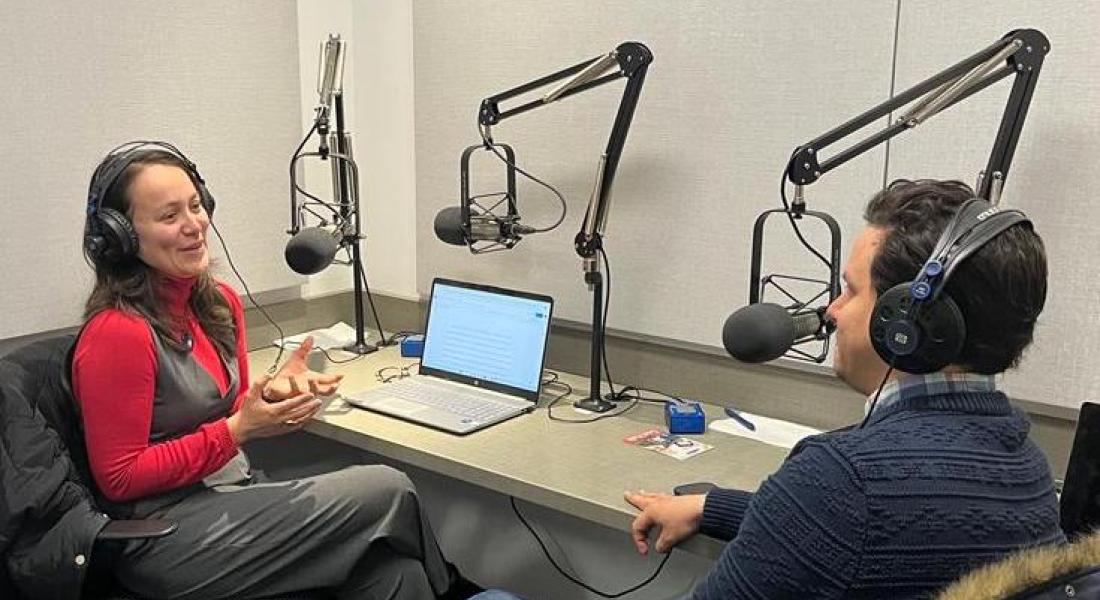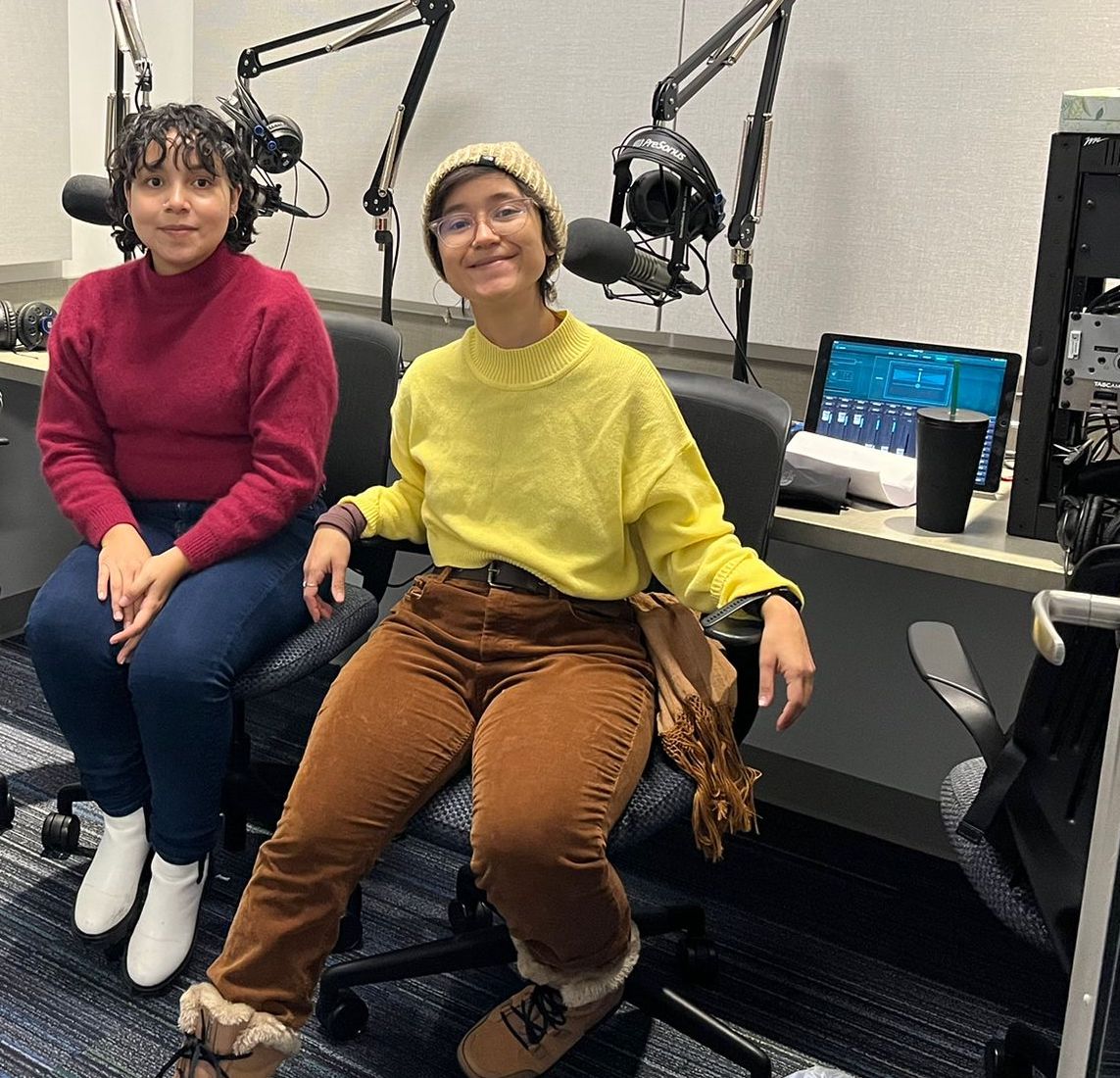
As it celebrates its 40th anniversary, the Kellogg Institute for International Studies has found another new way to disseminate information on the research of its scholars: podcasting.
“Global Stage” makes its debut on February 21 with an inaugural episode hosted by podcast organizers Benjamin Garcia Holgado, a Kellogg PhD fellow studying political science, and Isabel Güiza-Gómez, a Kellogg doctoral affiliate pursuing peace studies and political science. The episode features a conversation with Kellogg Faculty Fellow Michael Coppedge about his research on democratic development and decline.
“There is so much going on at Kellogg in terms of research projects – by undergrad students, grad students, and faculty – and this is a new way to share this research more broadly with people outside of Notre Dame,“ shares Garcia Holgado, who first proposed the idea to Kellogg.
Garcia Holgado envisioned a series of podcasts hosted by Kellogg doctoral affiliates interviewing guests about their research, current events, or even the research process itself. Both the Leadership and Communications Teams at the Institute enthusiastically embraced the idea and began implementing plans to bring the podcast to life. Soon after, Garcia Holgado asked Güiza-Gómez to join him as a coordinator of the podcast.
In episodes to be released in the coming weeks, researchers interviewed are historian Karen Graubart (“Racial and Religious Self-Governance in the Spanish Atlantic World”), political scientist Guillermo Trejo (“Democratic Transitions and Large-Scale Criminal Violence”), and political scientist Juan Albarracín (“Democracy, Peacebuilding, and Development in Post-Accord Colombia”).
 In a distinctive format, each episode is hosted by different doctoral affiliates of the Kellogg Institute, including so far Laura López Pérez (political science), Mayra Ortiz Ocaña (political science), Aitor Valdesogo (history), and Juan Vargas (history), in addition to Garcia Holgado and Güiza-Gómez.
In a distinctive format, each episode is hosted by different doctoral affiliates of the Kellogg Institute, including so far Laura López Pérez (political science), Mayra Ortiz Ocaña (political science), Aitor Valdesogo (history), and Juan Vargas (history), in addition to Garcia Holgado and Güiza-Gómez.
“One of the unique characteristics of Kellogg as a research institute is the number of affiliated and funded grad students – we work together, we coauthor together, we are friends in our personal lives – so it was a natural way to do podcasting as a collaborative project,” explains Garcia Holgado. “It’s a dynamic community, where there are always new students, so hopefully this will enable the podcast to continue into the future.”
“The diversity of both hosts and guests mirrors the diversity of our Kellogg community: doctoral students at different stages and in different disciplines, who invite other scholars in various fields for interviews,” says Güiza-Gómez. “Our plans include podcasts around theology, economics, humanities – like literature and cultural studies – and more…. It’s a really good way to expand our brains to think beyond our own disciplines.”
Both organizers see podcasts as a popular and highly accessible means of reaching various audiences, including other scholars, policymakers, and ordinary citizens, all who would have a different stake and reason for listening.
In the name of accessibility, some of the podcasts are recorded a second time in another language.
“Some of the first podcasts were done in both English and Spanish, and we hope to have others recorded in Portuguese and French, to reach new networks of non-English speakers with research that interests or even impacts them,” said Güiza Gómez.
The podcasts offer an overview of a guest’s research and scholarly opinions, but Garcia Holgado hopes listeners will be encouraged to learn more or choose to engage with the researcher after hearing the podcast.
“Whether it’s a policymaker who wants to become more informed, or a member of a social movement who wants to share what they’ve learned, or another scholar whose research interests are compatible, perhaps after hearing the podcast they’ll want to Google the guest to delve deeper,” he says.
“Blog posts became a main avenue for disseminating research a decade ago, but nowadays, podcasts are engaging people – while they are driving or commuting, cooking, working out, or whatever. It’s a great way to stay updated in today’s world,” explains Güiza Gómez.
“Others might not read journals, papers, or books, but this way they can get a taste of important research,” she says.





